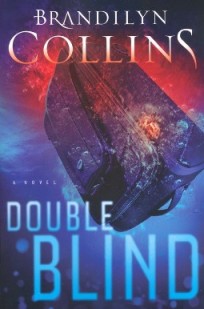Not Always Merry and Bright
by Steph Beth Nickel

Struggling?
Loss. Illness. Loneliness. Isolation. Fear.
Regardless of the year, Christmas can be a difficult and depressing season for many people. But 2020? Enough said.
You may be having a challenging day. Simply getting through it may be all you can do.
Here a few ideas that may make your day a little easier:
Even though it’s Christmas, reach out to a family member or friend if you need to chat even for a short time.
Work on a craft project. You don’t have to be good at it.
Write in your journal. It can be a great way to work through how you’re feeling. Don’t censor yourself. No one else ever has to read your words.
Watch your favourite movie. One that makes you laugh rather than cry may be a good option.
Listen to uplifting music. Some people like to listen to music that reflects their mood. I’m a fan of listening to music that reflects the emotions I want to feel.
Read a book. How about one that has been sitting on your To Be Read list for far too long?
Read the Christmas story in Luke 2.
Take a nap.
And if you’re up for it …
Make a list of things to be thankful for.
Connect with someone else who may need to hear a friendly voice today.
Know Someone Who’s Struggling?
We must never forget those having a rough time of it. (Remember what Jesus said in Matthew 25 about doing for “the least of these.”)
Here are some ways to reach out to someone during what, for some, is the Most Difficult Time of the Year:
Connect via Zoom—or another virtual means. Remember to include the children if you have little ones. For some, a child’s smiling face can go a long way to making them feel better. Plus, it helps your children learn that not everyone has a merry Christmas.
Create a Spotify playlist of your favourite uplifting music and share it with someone who needs the encouragement.
Pick up the telephone and call.
While you’re chatting ask if there’s anything you can do for the other person.
Pray for the individual you called. If they’re uncomfortable having you do so on the phone (or on Zoom), let them know you’ll pray when you hang up—and then do it.
Drop off Christmas dinner (or a plate of cookies) on someone’s porch. (Attach an encouraging note.)
If it’s impractical to drop off food, a card with a handwritten note could go a long way to cheering a lonely soul today.
Commit (even to yourself) to stay in touch. Throughout the new year call, visit, or fire off a note at least once a month.
While today won’t be merry and bright for many people, I pray the Lord will bring you the “peace that passes understanding.”
I also pray that He will increase our compassion for those He brings into our life and that He gives us opportunities to show them His love, the love that sent His Son to earth so long ago.
Have a Blessed Christmas, one and all!
Tweetables
- Christmas can be a difficult and depressing season for many people. And 2020? Enough said. (click to tweet)
- Simply getting through Christmas may be all you can do. (click to tweet)
- Even though it’s Christmas, reach out to a family member or friend if you need to chat. (click to tweet)
- We must never forget those having a rough time of it. (click to tweet)
- Connect with someone who is struggling. (click to tweet)
- Throughout the new year call, visit, or fire off a note at least once a month to someone who is having a tough time. (click to tweet)


As an editor, Steph Beth Nickel has the honour of coming alongside writers to help them polish their work. As the coauthor of Paralympian Deb Willows’s memoirs, Steph has been blessed to work with this amazing woman. And as a future self-published author, with the Lord’s help, Steph has taken brave steps toward publication.
If you would like more information about her services, you can contact her at stephbethnickelediting@gmail.com.
You’re invited to visit her website: http://stephbethnickeleditor.com/.
You can join her Editing Tips Facebook group here: https://www.facebook.com/groups/418423519384351.







